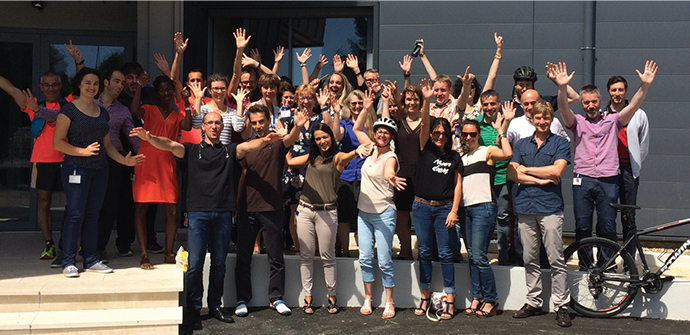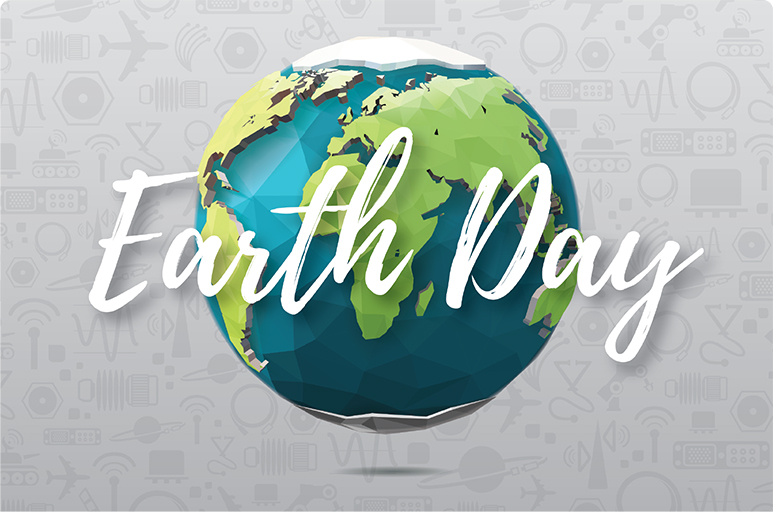Earth Day 2018
Earth Day is a globally observed holiday that serves to mobilize people for meaningful action on environmental issues.
The idea of a global holiday called Earth Day was first proposed at a 1969 UNESCO Conference on the environment by John McConnell, an environmental activist and newspaper publisher. The first annual observance was subsequently celebrated March 21, 1970. Supported by the United Nations, Secretary-General U Thant signed a proclamation on February 26, 1971 stating that the U.N. would celebrate Earth Day on the vernal equinox - the first day of spring in the northern hemisphere and the first day of autumn in the southern hemisphere.
At the moment of the vernal equinox each year, U.N. headquarters in New York rings the Peace Bell, a symbol of hope for peace. Today, Earth Day is celebrated in 192 countries and has inspired millions to take action to safeguard the natural environment.

Earth Day in the United States
A second Earth Day was founded in the United States on April 22, 1970, after a sustained grassroots effort, which culminated in twenty million Americans holding a peaceful, nationwide demonstration to show support for the environmental movement. Earth Day was the catalyst for the future passage of landmark legislation to protect the environment at the federal, state and local level. In the years following the founding of Earth Day, the U.S. Congress established the Environmental Protection Agency and passed the Clean Air Act, Safe Drinking Water Act, Endangered Species Act and Toxic Substances Control Act, among other major environmental protection laws.
“So long as the human species inhabits the Earth, proper management of its resources will be the most fundamental issue we face. Our very survival will depend upon whether or not we are able to preserve, protect and defend our environment. We are not free to decide about whether or not our environment "matters." It does matter, apart from any political exigencies. We disregard the needs of our ecosystem at our mortal peril. That was the great lesson of Earth Day. It must never be forgotten.”
– Senator Gaylord Nelson,
American politician and environmentalist,
proposed Earth Day 1970
Radiall Sustainability Initiatives
As part of Radiall’s company-wide project known as “Radiall 2025,” we’re accelerating the transformation of our practices in order to reduce our carbon footprint, improve energy efficiency, reduce emissions at production sites and encourage green initiatives which raise awareness about the environment in our day-to-day actions. The “Responsibility” pillar of Radiall’s "Better Connected" CSR policy promotes environmentally responsible actions and enables everyone to support our sustainability initiatives.
HERE ARE SOME HIGHLIGHTS FROM OUR ONGOING PROJECTS:
Building Sustainability
LED bulbs have replaced incandescent bulbs in the lighting systems at most sites. At the Radiall Obregón, Mexico offices, motion sensors have been installed to help improve energy efficiency. Additionally, a 400 m2 area will soon be covered by photovoltaic panels (or solar cells) which will provide 850,000 kw/h of energy per month. The sun shines all year round in the Sonora, Mexico region!
All our manufacturing facilities utilize the best practices to recycle industrial waste, save water and consume as little resources as possible. Radiall follows a strict hazardous substance corporate policy to ensure waste is properly disposed of through specialized channels in order to protect the environment.

Recycling
Each year we establish a company-wide goal to improve our global rate of recycling. Multiple "zero-paper" initiatives are being led at production sites as part of the Manufacturing Execution System (MES) project, which is based on an IT system designed to manage production processes. Its primary objectives are to collect, process and display production data in real time which contributes to a significant reduction in the use of paper by production units.

The “Green Radiall” working groups, formed under the “Radiall 2025” project, have also implemented several other initiatives to improve the management of recyclable waste. At the L’Isle d’Abeau, France facility, garbage cans have been installed to collect scrap metal and sort paper and plastic cups. For example, in 2016, 82,000 cups were recycled that were used on-site exclusively in coffee machines. In Shanghai, China, paper consumption has been reduced by more than 500 kg per year due to the installation of double-screens that limit printing.
Green Spaces
A portion of the grass at L’Isle d’Abeau has been turned into fallow land, which will mean the return of wildflowers next spring. In Bangalore, India, all biodegradable waste from the site is now collected in a compost area. The Radiall Obregón site collects up to 960 L of water from air conditioning condensation every day in order to water the surrounding land, which is particularly arid.
Transportation
Since 2015, our L’Isle d’Abeau plant has participated in the regional “Mobility Challenge” that encourages people to bike, walk, or carpool to work instead of using individual cars. Participants in the challenge last year saved over 1,200 lbs. of CO2 emissions from entering the atmosphere. At French sites, Radiall has dedicated parking for employees who carpool. Electrical outlets for electrical and hybrid vehicles are available to employees at the Château-Renault and Voreppe facilities. Electric bicycles are also available to employees at Radiall's three French facilities.
 Mobility Challenge in France
Mobility Challenge in France
We are the stewards of our planet. Earth Day is a reminder of our collective responsibility to engage in environmentally friendly practices and initiatives because of the positive impact on our planet.


